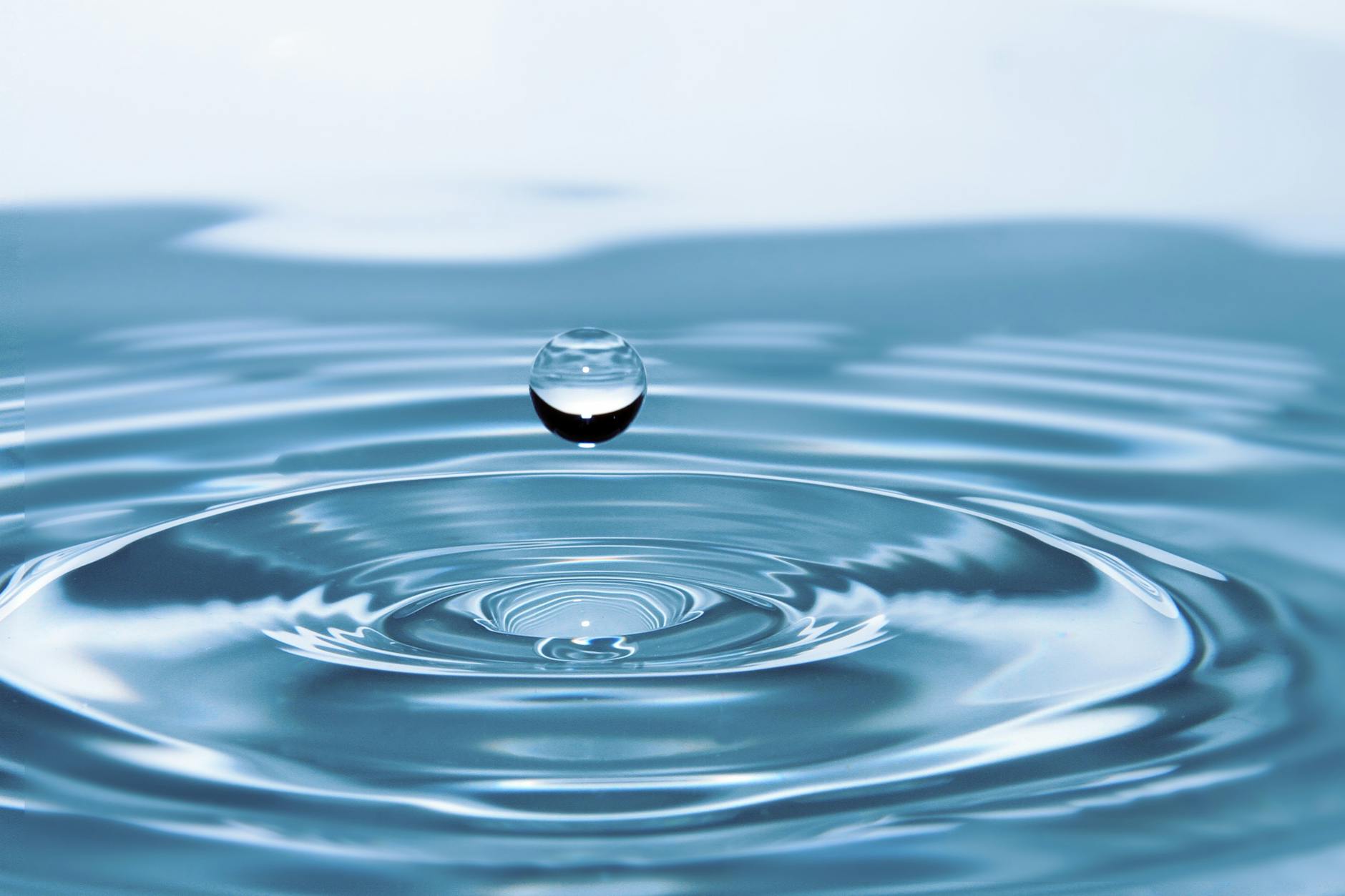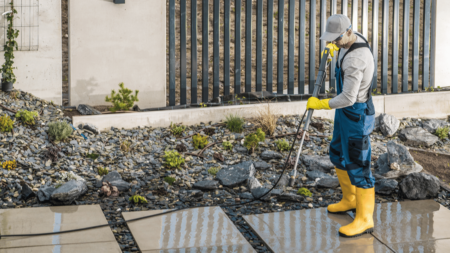
Switching to environmentally-friendly detergents isn’t just a trend; it’s a step towards a cleaner planet. If you’ve ever wondered whether these eco-friendly options can match the cleaning power of traditional detergents, you’re not alone. In this post, we’ll explore how effective they truly are and why they’re worth considering for your laundry needs.
Eco-friendly detergents offer a powerful clean without harmful chemicals. They’re designed to be gentler on your clothes and the environment. Plus, many of them come in biodegradable packaging, helping reduce plastic waste. With ingredients that are safer for both your family and the planet, these detergents are a win-win.
You’ll discover the best brands that make a difference and what you should look for when picking an eco-friendly detergent. Let’s dive in and see how easy it is to make the switch.
The Rise of Environmentally-Friendly Detergents
In today’s world, the shift towards environmentally-friendly detergents is gaining significant momentum. These products are designed to minimize adverse impacts on the environment compared to traditional detergents. Let’s delve into the reasons behind this shift and the consequences of sticking to conventional options.
Benefits of Using Environmentally-Friendly Detergents
- Gentler on Nature: Environmentally-friendly detergents are crafted with biodegradable ingredients that break down harmlessly in the environment, reducing pollution and protecting aquatic life.
- Healthier for You: Unlike their chemical-laden counterparts, these detergents are often free from harsh toxins and synthetic fragrances, making them safer for your family and pets.
- Sustainable Packaging: Many eco-friendly detergents come in recyclable or refillable packaging, contributing to waste reduction and promoting a circular economy.
- Preserving Natural Resources: By using detergents that prioritize sustainability, you play a part in conserving water and energy resources, thus supporting a greener planet.
How Traditional Detergents Impact the Environment
- Chemical Runoff: Traditional detergents contain phosphates and other chemicals that, when washed down the drain, can seep into water bodies, leading to algal blooms and disrupting aquatic ecosystems.
- Air Pollution: The manufacturing process of conventional detergents emits harmful pollutants into the air, contributing to air quality degradation and overall environmental harm.
- Plastic Pollution: Many traditional detergents come in single-use plastic containers that often end up in landfills or oceans, adding to the global plastic pollution crisis.
- Toxic Ingredients: Harsh chemicals in traditional detergents not only harm the environment but can also trigger respiratory issues and skin irritations in individuals exposed to them regularly.
By embracing environmentally-friendly detergents, you not only enhance the cleanliness of your clothes but also contribute to a healthier environment for all. Making the switch is a small yet impactful step towards a more sustainable lifestyle.
 Photo by Ivan Babydov
Photo by Ivan Babydov
Key Features to Look for in Environmentally-Friendly Detergents
When searching for environmentally-friendly detergents, it’s essential to consider specific key features that indicate their sustainability and effectiveness. Here are some crucial aspects to look out for:
Biodegradability and Eco-Certifications
One of the most critical features of environmentally-friendly detergents is their biodegradability. This means that the detergents can break down naturally without harming the environment. Look for products that carry eco-certifications from reputable organizations like the EPA or USDA, ensuring their eco-friendly claims are verified. These certifications guarantee that the detergent has undergone testing to meet stringent environmental standards.
Use of Natural Ingredients and Packaging
Another important factor to consider is the use of natural ingredients in the detergent formula. Opt for products that contain plant-based or biodegradable ingredients that are gentle on the environment. Additionally, sustainable packaging plays a significant role in the eco-friendliness of detergents. Choose products that come in recyclable or biodegradable packaging to reduce waste and promote sustainability.
 Photo by Anna Shvets
Photo by Anna Shvets
Effectiveness in Cleaning Power
While prioritizing sustainability, it’s crucial to ensure that environmentally-friendly detergents are also effective in cleaning power. Look for products that can efficiently remove stains, dirt, and odors without the need for harsh chemicals. Effective eco-friendly detergents prove that you can protect the environment without compromising on cleaning performance.
When choosing environmentally-friendly detergents, considering these key features will help you select products that not only benefit the planet but also provide excellent cleaning results. Make an informed choice that aligns with your values and contributes to a greener future.
Best Practices for Using Environmentally-Friendly Detergents with Pressure Washers
Pressure washers are powerful tools that can efficiently clean various surfaces when paired with environmentally-friendly detergents. To maximize the effectiveness of these detergents and ensure eco-conscious cleaning, it’s essential to follow best practices. Here are key tips for using environmentally-friendly detergents with pressure washers:
Dilution Ratios and Proper Application
When using environmentally-friendly detergents with a pressure washer, it’s crucial to follow the recommended dilution ratios. Proper dilution ensures that the detergent is effective in lifting dirt and grime while minimizing waste. Before starting, check the product instructions or do a small test to determine the optimal dilution for your cleaning needs.
Applying the detergent correctly is also important. Start by spraying the detergent from the bottom up to prevent streaking. Allow the detergent to dwell for a few minutes to break down stubborn stains effectively. Avoid letting the detergent dry on the surface to prevent residue buildup.
Rinsing Techniques to Minimize Water Usage
To reduce water usage while using a pressure washer with environmentally-friendly detergents, employ efficient rinsing techniques. Use the lowest pressure setting that can effectively rinse off the detergent to conserve water. Additionally, consider using a nozzle with a wider spray pattern to cover more surface area with each pass, reducing the overall water consumption.
When rinsing, work in sections to ensure thorough cleaning while minimizing water waste. Start at the top and work your way down, overlapping each section slightly to avoid missing spots. Regularly check the runoff water to gauge how much detergent remains, continuing to rinse until the water runs clear.
Compatibility with Different Pressure Washer Models
Environmentally-friendly detergents come in various formulations, each suited for different cleaning tasks. Before using a detergent with your pressure washer, ensure compatibility with your specific pressure washer model. Some detergents may work best with certain pressure levels or nozzle types, so it’s essential to choose a detergent that aligns with your equipment’s capabilities.
Check the detergent label or manufacturer’s guidelines for compatibility information. Using a detergent that is compatible with your pressure washer ensures optimal cleaning performance while maintaining the integrity of both the detergent and the equipment.
By adhering to these best practices, you can effectively use environmentally-friendly detergents with pressure washers, promoting eco-friendly cleaning practices while achieving excellent results. Remember to prioritize proper dilution, efficient rinsing techniques, and compatibility to make the most of your cleaning efforts.
Check out more tips on pressure washer maintenance and eco-friendly cleaning practices.
Photo by Tima Miroshnichenko 
Impact of Environmentally-Friendly Detergents on Water Sources
Using environmentally-friendly detergents can have a significant positive impact on water sources. These detergents are formulated to minimize harm to the environment, specifically water bodies and aquatic ecosystems.
Reduction of Chemical Runoff into Water Bodies
Environmentally-friendly detergents contain biodegradable ingredients that break down more easily in the environment. This means that when these detergents are used for washing clothes or cleaning surfaces, the runoff that enters water bodies is less likely to contain harmful chemicals that can pollute the water. By reducing the chemical runoff into water bodies, these detergents help maintain the quality of water sources and protect aquatic life.
Protection of Aquatic Ecosystems
Aquatic ecosystems, including rivers, lakes, and oceans, are delicate environments that can be easily disrupted by pollution from conventional detergents. Environmentally-friendly detergents play a crucial role in protecting aquatic ecosystems by ensuring that the water remains free from toxic substances. This, in turn, preserves the health of aquatic plants and animals, maintaining a balanced ecosystem.
 Photo by Pixabay
Photo by Pixabay
Conclusion
You’ve now explored the world of environmentally-friendly detergents, discovering their benefits for you and the environment. By choosing these products, you’re not only ensuring a safer home for your loved ones but also contributing to a cleaner planet for future generations. The power to make a positive impact lies in your hands every time you do your laundry or clean your dishes. Embrace the eco-friendly revolution one detergent at a time.
 Photo by Cup of Couple
Photo by Cup of Couple
![Top 5 Pressure Washer Accessories You Didn’t Know You Needed [Updated 2024]](https://pressurwasher.com/wp-content/uploads/2024/06/Minimalist-Tutorial-Event-YouTube-Thumbnail-2024-06-03T215409.851-450x253.png)




